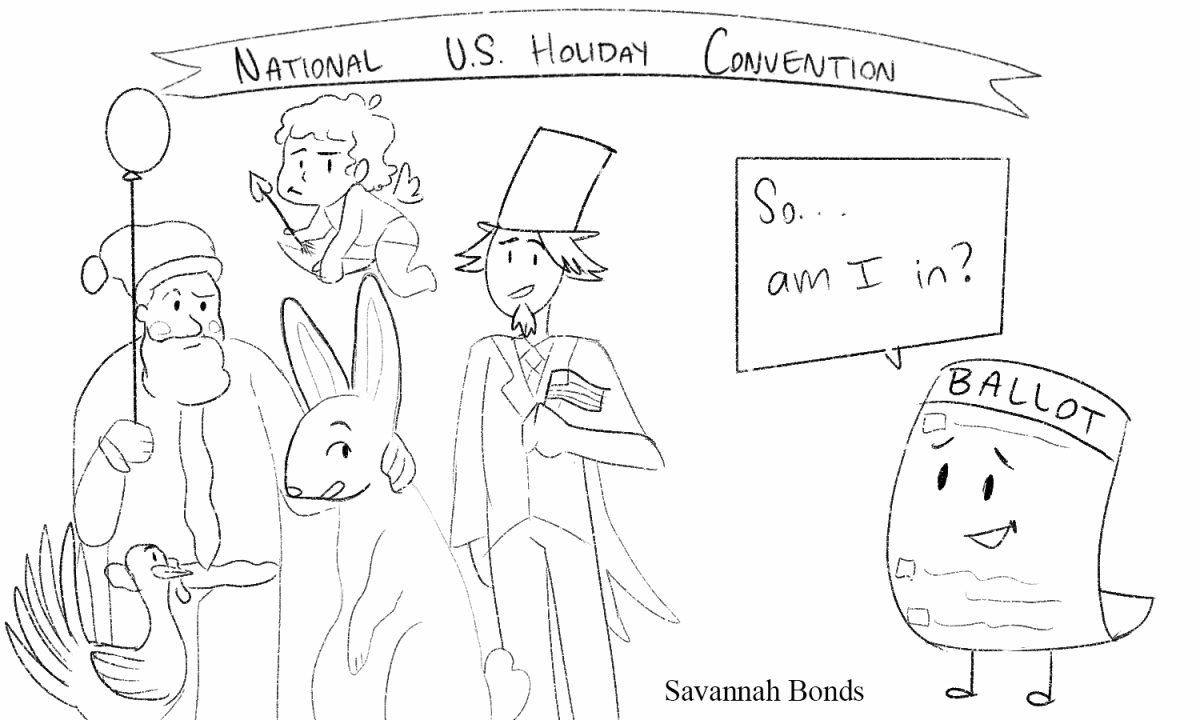In case you have somehow missed the message from every Twitter post, YouTube advertisement and news channel, it is important to vote. However, that is sometimes easier said than done. All demographics of people can have difficulty making it to a polling location come Election Day. Most adults have jobs which prevent them from freely going to vote, and college students either have classes or are located too far away from home. Since voting plays such a critical role in our government, there should not be so many factors standing in the way of one of our most fundamental rights as citizens. Establishing Election Day as a national holiday would be a step toward removing some of the difficulties preventing people from voting.
According to Time and Date, Election Day is the Tuesday after the first Monday in November, which was decided upon by the U.S. Congress back in 1845. That specific date was not chosen by some old senator blindly tossing a dart at an 1845 calendar, but instead, it was determined to be the most suitable date for voters of that period.
The website notes at a time when the majority of the country’s population still lived in rural areas, it was important to have the election date set after the fall harvest but before the arrival of harsh winter storms, which led to November being chosen as the designated voting month. Tuesday was selected because voting at that time often required a day’s travel due to the slower means of transportation in rural areas, and having Election Day on Monday would require travel on a Sunday, a religious day to many people at the time.
Election Day itself was born out of the need for convenience, but now it needs to be brought into the 21st century and updated for the convenience of modern voters.
Times have changed since the mid-19th century, and the modern voter does not typically have to worry about harvest times impacting their right to vote. However, there are still the time factors which affect many voters today. While primarily college students might face a great traveling distance to vote, many adults have a short drive to the voting booth but have long work hours which hinder their flexibility to drop everything and vote.
Establishing Election Day as a holiday will give citizens the necessary break away from work or classes to exercise their right to vote. If Congress can make it more convenient for farmers in 1845 to vote, then the same should be true for voters in the 21st century.
Neither having a day off to vote nor establishing that day as a holiday are new ideas, however. According to Kara Corte with CBS News, a dozen states already recognize Election Day as a holiday for state employees, but I argue this number should be 50 and for all.
Making it easier for voters to have access to the voting booth should not be a partisan issue. Both parties should want to increase voter turnout. Congress establishing Election Day as a holiday would bring the other 38 states in line with those which have already made the change.
The change would lead to an increase in voter turnout, which in previous elections, like the 2016 presidential election, has been around 60%, as reported by FairVote.
The voter turnout for younger adults is always one of the lowest, and an Election Day holiday would offer college students the chance to change that statistic. It also still helps the middle-aged group of adults who are stuck at work and unable to make it to the voting booth without taking a sick day or being dangerously close to missing voting deadlines entirely.
Perhaps the only demographic this would not be a direct benefit to is the older generations, who are already retired and have plenty of free time to stand in line and vote.
While there are already processes in place to make voting easier, such as absentee ballots or voting early by mail, taking an additional step to let more people exercise their right to vote should never be a bad decision. Establishing Election Day as a national holiday would increase voter turnout and ease the stress which many citizens face come election time, and at a bare minimum, it recognizes the celebration of our nation’s democratic process.





















































































